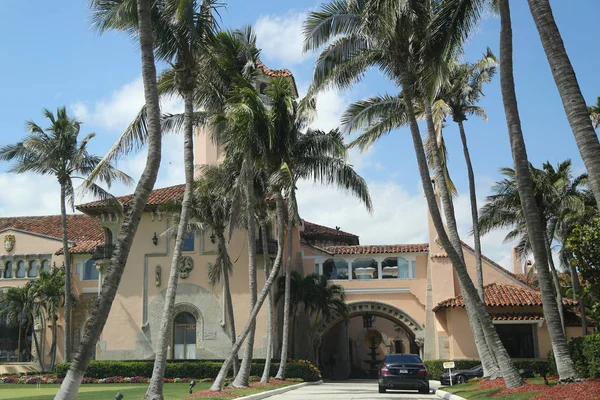Invading Mexico Will Squander America’s Advantage Against the Cartels
Some problems can’t be solved with special ops and missile strikes.

As the second Trump administration settles into Washington, much of its focus will be directed toward the southern border. Illegal immigration from Mexico (and its consequences) was a major focus of the campaign, and cutting it off will be a priority of the Trump team. Alongside illegal immigration sits another problem south of the border: Mexican organized crime. The cartels are among the greatest scourges of the United States, supplying the drugs that are decimating American cities, profiting from transporting illegal immigrants across the border, and pushing violent criminals and human traffickers across the border.
Among the myriad of solutions that have been suggested by Trump-aligned politicians and policymakers, one stands out for both its boldness and its short-sighted nature: attacking the cartels with American military force. This solution has been floated by both Tom Homan, Trump’s border czar, and Mike Waltz, his national security advisor, who drew up an Authorization for the Use of Military Force against cartels while serving in Congress.
Proponents of this plan envision special operations teams crossing the border to eliminate cartel forces, destroy their bases of operations, and capture and kill their leadership. Larger and more difficult to reach strongholds can be wiped from the map with air strikes and cruise missiles. With their leaders dead or captured, their personnel gone, their supply chains destroyed, and their funding burned, the theory goes, the cartels will no longer be capable of troubling Americans by smuggling into the country crime or drugs.
It’s a neat theory. Certainly it is pleasing to imagine American soldiers wiping out the barbaric criminals that occupy and oppress much of rural Mexico and who have been responsible for so much death and destruction in both countries. But it fundamentally misunderstands the dynamics of both Mexican politics and the social, political, and economic circumstances that allow the cartels to flourish.
As advocates are aware, the Mexican government would never allow the American military to simply operate freely on Mexican soil. Mexico is a proud and patriotic country, and Mexicans have long felt a keen sense of resentment towards their more powerful northern neighbors. The U.S. has a long history of interventions and invasions, from the Mexican–American war that saw Mexico lose huge swathes of its territory to the occupation of Veracruz during the Mexican Revolution. The Mexican people have never forgotten those humiliations, and anti-American sentiment remains a powerful political force. Even if Mexican leadership were friendly towards the U.S. and willing to accept military aid against the cartels, the popular backlash against American military forces setting foot on Mexican soil would be too great to overcome.
The implication, then, is that the United States should simply ignore the will of the Mexican government and conduct a “soft invasion” of the country instead. This would be an error of monumental proportions. Instead of leveraging the greatest resource available for combatting the cartels—a disgruntled Mexican populace—it would legitimize them as points of resistance against an imperialist United States aiming to destroy Mexican sovereignty.
Turning the cartels into figures of popular resistance would be catastrophic, and make stamping them out into a far worse nightmare. The Mexican public is currently deeply discontented with the violence and disorder caused by cartel activity in the country; making them into anti-imperialist revolutionaries would allow them to hide behind behind supportive civilian populations, blending in with locals in a way that would make avoiding mass civilian casualties and the consequences thereof impossible.
The cartels are already deeply embedded in the social fabric of rural Mexico. They flourish in areas where state capacity and the rule of law is weak, where they can use the profits generated by the proceeds of organized crime to fund their quasi-state security apparatus, buy off local government officials and police forces, and provide handouts to the public to keep unrest low. A soft invasion of Mexico would be catastrophic for the only long-term solution to cartel violence: a Mexican government strong enough to maintain order and the regular function of government far outside of Mexico City.
Mexico itself already attempted a program of hard military force aimed at decapitating and incapacitating cartels. During the presidency of Felipe Calderón, the Mexican government cracked down hard on organized crime, sending tens of thousands of troops to battle cartel forces across the country. A particular emphasis was made on capturing or killing cartel leadership to decapitate criminal organizations and disrupt their function.
The results were terrible. By the end of Calderón’s six-year presidency, cartel-related murders skyrocketed from about 2,000 per year to over 12,000 per year. Instead of being degraded, cartels militarized and diverted vast sums of their drug money to corrupting the Mexican army and law enforcement, making enforcement less effective and cartels more dangerous. Even the decapitation campaign failed: Despite the Mexican government capturing or killing 25 of the 37 kingpins on its most-wanted drug lord list, cartel operations continued. Instead of leaving cartels in a disorganized and disordered state, the decapitations simply opened up vacuums into which other cartels could expand their own operations.
Calderón’s drug war failed because, while the Mexican army was capable of killing cartel criminals and destroying their assets, it was not capable of sustaining state capacity and the monopoly on force in distant, cartel-dominated regions once the military left. Destroying cartels simply left the territory open for new entrants, who were happy to take advantage of the lucrative opportunities available to organized crime in weakly-governed areas close to the massive markets of the United States.
An American intervention will face the same problems on a much greater scale. Short of permanently occupying regions where cartels operate, we cannot impose good governance on Mexico. Furthermore, by infringing on Mexican sovereignty, we legitimize the cartels in the eyes of the Mexican people and simultaneously weaken the capacity of the Mexican government to impose order itself. Even apart from any other repercussions or consequences, it would be a great waste of American blood and treasure—and it will cost blood.
As frustrating as it may be for those who fantasize about ending crime at the barrel of a gun, cartels cannot be durably destroyed by missile strikes and special operations teams. Military force will be a necessary component of any solution to organized crime in Mexico, but only as part of a sustained project to increase the quality of rural governance and the state capacity of the Mexican federal government.
Instead of launching soft invasions, American policy to combat cartel crime should focus on cooperating with Mexico to reduce corruption and increase the professionalism and capability of its armed forces and law enforcement. President Claudia Sheinbaum’s security plan includes a focus on expanding and developing the Mexican intelligence services, a vital component for countering organized crime, and something with which the U.S. is well-equipped to assist.
Whatever the differences between Mexico and the United States, organized crime and drug cartels are a shared problem that impose deep costs on the citizens of both nations. A cooperative approach to such issues is the only path towards a durable solution.
The post Invading Mexico Will Squander America’s Advantage Against the Cartels appeared first on The American Conservative.

